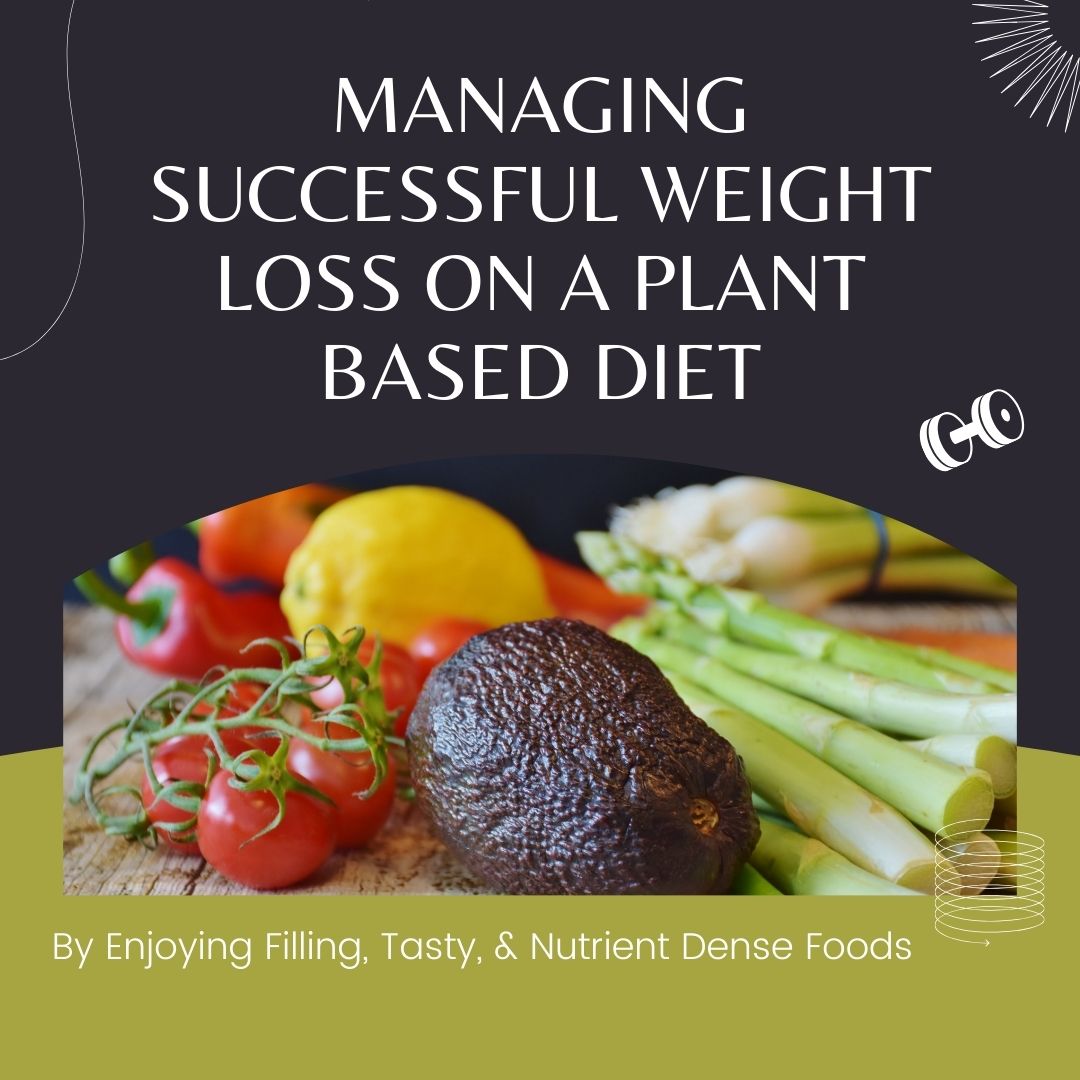If you’ve been thinking about trying plant-based eating to shed a few pounds, you’re in good company. More and more people are discovering that weight loss on a plant-based diet can be a healthy, effective, and surprisingly simple approach—no calorie-counting apps or extreme restrictions required. But, like with any lifestyle shift, success comes from understanding how to make it work in your real life.
Let’s be honest—when it comes to weight loss, the advice out there can be wildly overwhelming. Low-carb, no-carb, intermittent fasting, juice cleanses… it’s a lot. But if you’re looking for a more sustainable, nourishing, and realistic way to reach your goals, a plant-based approach might be just what you need.
Rather than chasing trends, plant-based eating focuses on whole, vibrant, nutrient-dense foods that support your health and your waistline. It’s not about restriction—it’s about abundance. Here’s how it works, plus five practical tips to help you stay on track.
Why Weight Loss on a Plant-Based Diet Works Better Than Restrictive Diets
Plant-based eating focuses on whole, minimally processed foods that come from plants—like fruits, vegetables, whole grains, legumes, nuts, and seeds. These foods are naturally lower in calorie density and higher in fiber, meaning you can feel full and satisfied while eating fewer calories overall. That’s a huge win for anyone trying to manage their weight without constantly feeling hungry or deprived.
Unlike diets that promote cutting out entire food groups or surviving on shakes and supplements, plant-based eating is about what you add to your plate—not what you take away. But let’s address a few important details so your transition feels doable and empowering, not overwhelming.
Just a quick heads-up: I’m not a health professional—these tips are based on general knowledge, personal experience, and what you’ll commonly find in plant-based nutrition articles and studies. Most of it is pretty practical, nothing radical or extreme, but always check in with your doctor or a registered dietitian if you’re making changes to your diet, especially if you have health conditions or specific needs.
Protein: Still a Hot Topic
One of the first things people worry about when switching to a plant-based diet is protein. But here’s the truth: there are plenty of excellent plant-based protein sources that can support your health and your weight loss goals. Think lentils, beans, tofu, tempeh, quinoa, edamame, and even veggies like peas and spinach. Add in protein-rich nuts and seeds like hemp, chia, sunflower, or almonds, and you’ll be surprised how easily you can meet your needs. When aiming for weight loss on a plant-based diet, protein helps you feel full longer and supports lean muscle, which keeps your metabolism strong.
Why a Plant-Based Diet Helps with Weight Loss
The key to plant-based weight loss success often comes down to calorie density. Whole plant foods tend to be lower in calories but higher in nutrients and volume. You can eat large, satisfying portions without consuming too many calories. That means you’re more likely to feel satisfied with your meals and less likely to snack or overeat later. The Forks Over Knives (FOK) article CALORIE DENSITY IS THE KEY TO WEIGHT LOSS is a great resource for understanding this concept, and FOK continues to be one of my go-to sources for living a healthy, plant-based life.
Fiber is another major player. It slows digestion, regulates blood sugar, and helps you feel full longer. And when your meals are packed with colorful, fiber-rich foods, there’s just less room (and desire) for processed, high-calorie options.
Whole foods also tend to be naturally low in added sugar, saturated fat, and artificial ingredients. Many people who switch to a plant-based diet see improvements in energy, digestion, and overall health—on top of weight loss.
5 Real-Life Strategies to Make Plant-Based Weight Loss Work
1. Be mindful of portions—even healthy food adds up
It’s easy to assume that all plant-based foods are automatically “healthy,” but portion sizes still matter, especially with calorie-dense foods like oils, nut butters, and processed snacks. Use visual cues to build balanced meals: load up on non-starchy vegetables, add a healthy portion of beans or tofu, and keep grains or starchy veggies to a moderate amount. Mindful eating helps you tune into hunger and fullness without relying on calorie counting.
2. Be Mindful of Processed Plant-Based Foods
It’s easier than ever to find plant-based versions of comfort foods—burgers, nuggets, pizzas, even ice creams are now widely available in vegan form. While these can be fun occasional treats, they’re still highly processed and often high in salt, added oils, and calories. Just like with traditional diets, relying too heavily on convenience foods can slow your progress. For the best results with weight loss on a plant-based diet, focus on whole foods most of the time, and treat the processed stuff like a once-in-a-while bonus, not a daily staple.
3. Stay hydrated to support your goals
Hydration can influence appetite more than we think. Sometimes what feels like hunger is actually thirst. Drinking enough water throughout the day supports digestion and helps your body process fiber more effectively. Try keeping a reusable bottle nearby and infuse your water with lemon, cucumber, or herbs if plain water gets boring.
4. Prep ahead to avoid impulse choices
When you’re hungry and tired, convenience often wins. That’s why prepping plant-based staples ahead of time is a game-changer. Batch cook grains, beans, or soups. Wash and chop veggies so they’re ready to go. Keep a few easy meals in mind—like grain bowls, wraps, or chili—that you can throw together without thinking too hard. Weight loss on a plant-based diet becomes much easier when your fridge is full of ready-to-eat, nourishing options.
For more ways to stay organized and stocked with healthy options, check out my tips in PLANT-BASED SHOPPING STRATEGIES. These strategies will help you plan ahead, save time at the store, and ensure you always have fresh, plant-based ingredients on hand.
5. Add movement that fits your lifestyle
While diet is key, regular movement supports sustainable weight loss and overall well-being. You don’t need an intense gym routine. Find something you enjoy: walking, biking, yoga, dancing in your kitchen—it all counts. Physical activity not only burns calories but also improves mood, sleep, and motivation. Looking to start somewhere? Set a daily step goal and eventually shoot for 10,000 steps per day and watch the positive changes to your body over time.
6. Don’t let perfection sabotage progress
It’s easy to fall into the trap of “all or nothing.” But you don’t need to eat 100% whole-food plant-based every single day to see results. If you have a less-than-ideal meal or snack, just move on. One choice doesn’t erase your progress. Focus on consistency over time, not perfection in every moment. That mindset shift is one of the most important keys to success with weight loss on a plant-based diet.
Final Thoughts
Choosing a plant-based path for weight loss is more than a diet—it’s a lifestyle built around foods that truly nourish your body. The fiber, nutrients, and lower calorie density of whole plant foods make them naturally aligned with healthy weight goals. Add in practical habits like prepping meals, staying hydrated, moving your body, and giving yourself grace, and you’ve got a formula that’s not just effective—but sustainable.
Weight loss on a plant-based diet doesn’t need to feel restrictive or complicated. Keep it simple, stay consistent, and focus on progress—not perfection.






